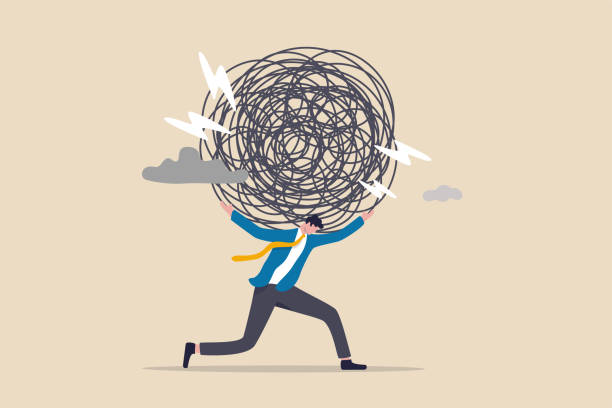
Being alone can be hard. When we are alone, it feels as though certain expectations exist, and our solitude fails to fulfill them. The media perpetuates the notion of being by yourself as something abnormal as if happiness can only come from social events and surrounding yourself with people – in reality, happiness can be found anywhere. For me, it has always been hard to fully comprehend that I can be alone for however much I need, and still have a vast amount of great things in my life. While it is true that complete social isolation is unhealthy, I don’t believe simply enjoying your own company to be something problematic; on the contrary, I think it should be normalized.
Loneliness and being alone are not the same thing. Contrary to being alone, loneliness isn’t fueled by social isolation, but by social disassociation from those around you. Being alone is a physical state whereas loneliness is more emotional. Just because you are alone, doesn’t necessarily mean you are lonely; you can still have good relationships and choose to be by yourself without feeling dissociated from those around you. I know that both of these are things all of humanity is subject to, and if that’s the case why don’t I feel comfortable staying alone in my room on a Friday night? Why do I get this overwhelming feeling that I should be doing something, anything, with someone somewhere? I personally despise the fact that the norm is having to ‘be social’ every minute of the day. For most people, this is a completely unrealistic standard. Several Graded students find it hard to be alone merely because of the way our society portrays this concept: “I feel like there’s a standard that being alone means you don’t have any friends, that you’re an unlikeable person.” Who would want to be alone when, even in our school community, those who sometimes enjoy solitude are seen as cold and “unlikeable”?
As someone who has switched schools quite a few times throughout my life, one could think that I would have gotten used to enjoying my own company; but, as far as I can tell, these experiences have had quite literally the opposite effect. When I was younger, I had a strong tendency to keep more to myself. It wasn’t because I didn’t have people to confide in, it was just because I enjoyed being alone; at recess, I felt perfectly fine straying away from the playground and using that time to express myself through creative outlets. I was happy, and so I really didn’t understand why my report card comments urged me to “spend more time with peers” or why the term “quiet kid” had such a negative connotation. However, as I got more exposed to social media and grew into my teenage years, a part of me became fixated on knowing what other people were doing and making sure that I, too, was keeping up with the societal norm of what being a teenager was supposed to look like.
Society sets standards for what your high school years should qualify as, but what if my definition of happiness doesn’t fit into that standard? Why isn’t it normal to not conform to what’s portrayed in the media, or to simply want to be alone most of the time? I understand that collaborative efforts and constantly talking to friends or peers are both highly valued at Graded, but I also do believe that in our school community, we can do a better job at understanding the fact that not everyone feels happy in the same, highly social environments. After talking to one of Graded’s social emotional counselors, Ms. Tollefson, I was able to better understand the controversy formed in regards to the preference of being desolate. Whilst listening to her perspective on this topic, an incredibly interesting point she made was that we as a society are slowly progressing towards becoming more accepting and open to respecting other people’s needs, even in regards to solitude. Ms. Tollefson states, “I think we are starting to open up. . . it’s starting to destigmatize certain things where I think people are starting to be more respectful. Introverted versus extroverted is a good way to look at it, as well as the idea that there are those people who need that alone time”. Ms. Tollfeson, however, also recognizes that there is remaining conflict and certain groups of people who do not understand one’s want and need to have time for solely themselves. She mentions there is “a bit of a stigma where people who like that alone time, who want to be by themselves, are sometimes looked at as ‘why are you by yourself, do you not have friends, do you not have social connections’, when in reality they view it as, ‘I like spending time with myself or be able to read, or listen to music, or draw, or just process the world around me and have that solitude and that’s what I like’”. Small things such as wanting to eat alone at lunch, using flex as a time to recharge yourself from high social stimulation, or simply preferring to work alone in class over group work shouldn’t be viewed as out-of-the-ordinary behavior and should instead be normalized in order to make sure no one feels alienated or as though they are an anomaly.
It is true that I constantly catch myself hyper-fixating on what everyone else is doing when loneliness washes over me. It’s also interesting– and comforting– to know, however, that I am not alone in that regard, and that many students from our school community feel the same way: “When I go on social media and I see people, or my friends, having fun, it makes me feel insecure about being alone. I tend to focus on what they’re doing instead of enjoying my own company.” I, too, often fall into an unhealthy rabbit hole of wanting to know a bit of everything all of the time, an uncanny desire made possible to fulfill by the internet. Yet, when I stop myself from focusing on everyone else and comprehend that being alone is completely fine; if it brings one person happiness and doesn’t harm anyone else, why deprive that one person of happiness in this form by giving it such a negative connotation?
Happiness is formed by our own jurisdiction and not by others’ — being alone isn’t sad and shouldn’t make you odd or pitiable. Solitude is a beautiful thing that humans need in order to reset and grow. Alone time allows me to strengthen mentally and to focus on my needs in that moment instead of exhausting myself socially with the people around me, and I’m slowly coming to learn that there’s nothing wrong with that. As humans, we are constantly searching for things that make us feel complete, and for many finding time to be by themselves is one of them. So in that regard, we really should normalize being alone; it should be okay to enjoy solitude. To enjoy ourselves.













Patricia • Sep 17, 2024 at 11:28 am
Wonderful article